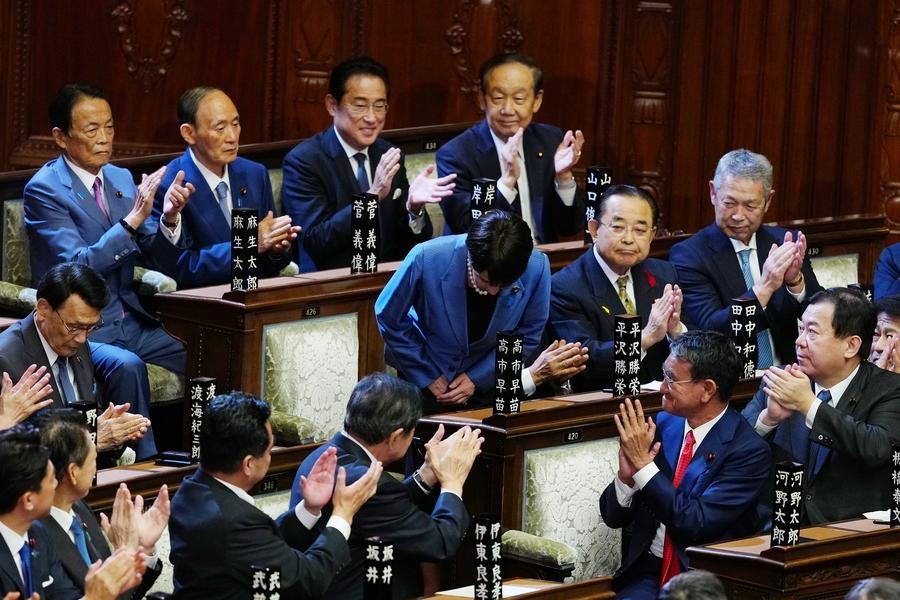Takaichi's remarks on Taiwan slammed

SEOUL — The head of the Korea-China City Friendship Association has vehemently denounced Japanese Prime Minister Sanae Takaichi's recent remarks on China's Taiwan as a despicable act that betrays diplomatic trust.
"I believe these were outrageous remarks that disregard diplomatic practices and squarely violate international law … Japan has no right to interfere in China's internal affairs, and no right whatsoever to shake the one-China principle … It was a despicable act that betrays diplomatic trust," Kwon Ki-sik told Xinhua News Agency in a recent interview.
"The one-China principle has already been established by both international custom and law," he said.
He recalled that Japanese militarists waged wars of aggression in East Asia and inflicted considerable damage on countries such as South Korea and China. "Japan should have deep reflection" on this, he said.
According to Kwon, the one-China principle is a basic consensus for maintaining peace in the world and East Asia, noting that Japan has no right to interfere in China's internal affairs, and no right to shake the principle.
Describing the attempts by some Japanese people and political forces to return to militarism as a "delusion", Kwon claimed that going back to the militaristic era is not only impossible but also will bring disaster to future generations of Japan, pointing out that militarism would force Japanese youths onto the battlefields again and innocent civilians to suffer the ravages of war once more.
"Such thinking by the Japanese right-wing is the main culprit harming the peaceful lives of Japanese people, and it must be stopped at all costs. … Japan does not teach the history of its war crimes, so Japanese youths don't know about it. Because they don't know, they don't reflect and even think that they have no responsibility toward (victim) countries. It is a great misfortune for Japan's future," said Kwon.
Lack of confidence
He said the rampant far-right activities in Japan were rooted in a deep sense of crisis over China's rise and a feeling of loss from long-term economic stagnation, noting that the Japanese right wing sought to find its presence through external conflicts because of its lack of confidence.
Kwon believed that Japan's unnecessary provocation was due to its domestic political situation. Takaichi had a weak political base when she assumed power in a coalition government and chose to instigate conflict between China and Japan in an attempt to mobilize right-wing and moderate forces to maintain her power, he said.
"This is a fundamental error in judgment," he said, pointing out that Takaichi caused unnecessary conflicts without considering the national interest.
Kwon said that the root cause of tensions in East Asia historically originated with the United States, whose current policies have worsened the situation, stressing that Takaichi further fueled tensions and became "a factor heightening tensions in East Asia".
He urged Japan to "squarely realize reality and abandon delusion" as East Asia today is not what it was 80 years ago.
Meanwhile, Russian Foreign Ministry spokeswoman Maria Zakharova on Thursday also slammed Takaichi's Taiwan-related remarks, saying Japan has not yet acknowledged its mistakes 80 years after World War II.
"Eighty years have passed, and Japan still refuses to recognize the results of World War II," Zakharova said.
The Taiwan question is China's internal affair and China has every legitimate reason to defend its sovereignty and territorial integrity, she added.
Xinhua
































